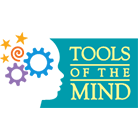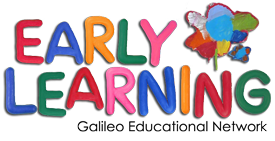
Psychologist Lev Vygotsky lived during the Russian Revolution. His primary work is known within his Social Development Theory. He believed social interaction plays an essential role in cognitive development. He focused on the connections between people and the cultural context in which they interacted. Vytgotsky also believed humans use tools such as speech and writing to mediate their social environment. For children, these tools are developed solely to communicate needs. Vygotsky believed the internalization of these tools led to higher thinking skills. Students should also take an active role in their learning, and teachers should act as collaborators to facilitate meaning. In this way, learning becomes a mutual experience between student and teacher.
The Tools of the Mind approach to learning is based on Vygotsky’s insights into executive functioning and its development. It promotes a system of activities supporting executive functioning skills, which is a foundation to learning. Activities include using self-regulatory private speech, which means having the child say out loud what they are doing, and using aides to facilitate memory and attention. These activities are woven into the teaching of academic skills. The promotion of mature, dramatic play is also important. For Vygotsky, engaging in such play represents the primary way children develop executive functioning skills. In the Tools curriculum, children are taught to think about their play scenario ahead of time – to name what role they’ll play, the role other children will play, and what happens next. A teacher can then approach children as they play, and prompt a discussion of what will happen next. The result of all this is the children engage in Vygotsky’s definition of private speech (thinking as they are talking). Role-playing also allows children to internalize rules and expectations of social behavior, and honour the so-called rules of play they had agreed upon verbally before the play scenario began. In this way, they are exercising self-regulation. In short, the type of play in the Tools approach requires teachers to help children plan, and stay true to their plans in a way that emphasizes inhibitory control and working memory, while the play scenario evolves and becomes more creative and complex. They are scaffolding their student’s learning, from being regulated by others, to engaging in “shared” regulation, to eventually, becoming masters of their own behavior.
The Early Years: Preschool Program Improves Cognitive Control
The Tools of the Mind curriculum is featured in Adele Diamond’s report The Early Years: Preschool Program Improves Cognitive Control. It outlines how the use of the Tools curriculum contributed to social and academic success, when compared to a school district’s version of the Balanced Literacy Curriculum. Children experienced such success with the Tools program, the school involved in the study switched to that approach entirely, as officials felt it was unethical to deprive them of the program’s benefits.
Focus and Planning Skills can be Improved Before a Child Enters School
Focus and Planning Skills can be Improved Before a Child Enters School. (2008). National Scientific Council on the Developing Child. Harvard.
This study concerns the Tools of the Mind curriculum. It finds focusing attention on a preschool-age child’s executive functioning skills can be helpful and may also improve the development of more traditional academic skills.

